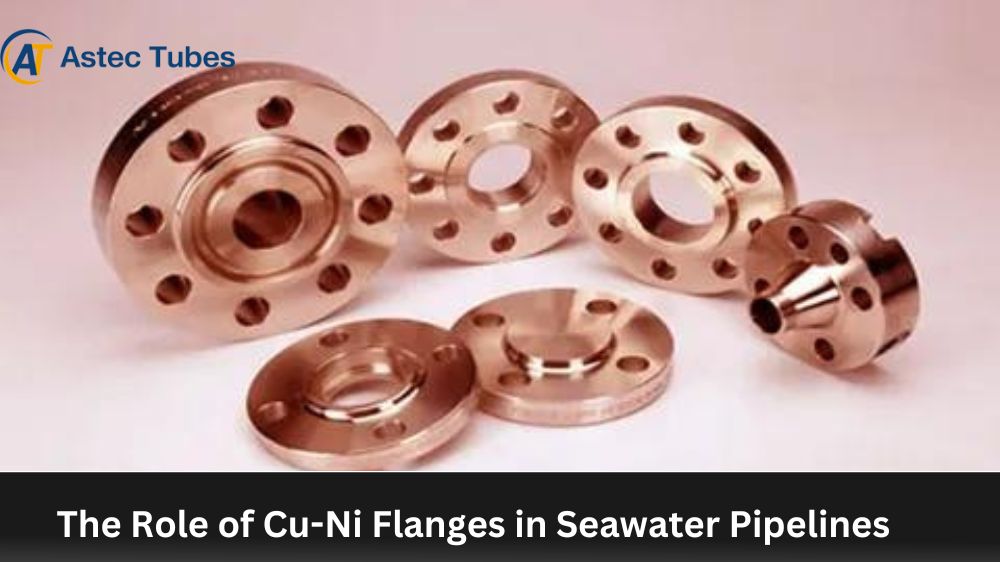Seawater has become a significant water source for various industries, such as oil and gas, power generation, and desalination. Seawater pipelines transport this essential resource to these industries, and the efficiency and reliability of these pipelines rely heavily on the materials used. One of the crucial components in seawater pipelines is flanges. But not all flanges are suited for seawater pipelines, which is where Cu-Ni (Copper-Nickel) flanges come in. In this article, we will examine Cu-Ni flanges and why they play a crucial role in seawater pipelines.
What is Cu-Ni Flanges?
Cu-Ni flanges are metal components made from Copper-Nickel alloys (70/30 and 90/10) primarily used in shipbuilding and marine engineering due to their excellent corrosion resistance properties. They can be used for various pressure vessel connections, including round bars, forged bars, hollow bars, and hex bars. This flange type is extremely strong and durable; it can effectively withstand extreme temperatures without deformation or integrity change. Additionally, it’s simple to install on various surfaces, making Cu-Ni flanges an attractive choice for many projects.
Understanding the Essential Role of Cu-Ni Flanges in Seawater Pipelines
Cu-Ni flanges are made from copper and nickel alloys, which are known for their excellent resistance to corrosion, especially in seawater environments. In scientific terms, the alloy’s resistance to seawater is due to forming a protective, adherent oxide film, which makes the flanges highly resistant to localized attack by seawater. This oxide film or patina is a barrier between the seawater and the flange material, effectively preventing further corrosion. This makes Cu-Ni flanges ideal for use in seawater pipelines.
Another advantage of Cu-Ni flanges is their high durability. Due to their corrosion resistance, these flanges have an extended service life, which reduces the need for regular maintenance and ultimately lowers the overall lifetime costs of the pipelines. Additionally, Cu-Ni flanges’ excellent mechanical strength allows them to withstand high pressure and extreme temperatures, making them ideal for harsh operating conditions.
Cu-Ni flanges also help ensure seawater’s safe and reliable transportation in pipelines. Leakage and damage to pipelines can cause severe harm to the environment and human life in nearby areas, and Cu-Ni flanges play a crucial role in preventing these incidents. By using Cu-Ni flanges, pipeline operators can ensure that the pipelines remain leak-free, reducing the risk of accidents and preventing costly shutdowns.
Finally, Cu-Ni flanges are also environmentally friendly. Since these flanges require less maintenance and have an extended service life, they reduce the need for frequent maintenance work that can harm marine life and the environment. Additionally, Cu-Ni alloys are recyclable, reducing the environmental impact caused by manufacturing new flanges.
Conclusion:
Seawater pipelines are essential for industries that rely on seawater for their operations. To ensure seawater’s safe and reliable transport, pipelines must-have components that can withstand harsh operating conditions and corrosion from seawater. Cu-Ni flanges have become the preferred choice for pipeline operators due to their excellent corrosion resistance, high durability, and environmental friendliness. By using Cu-Ni flanges, pipeline operators can ensure efficient and safe seawater transport, reducing the overall lifetime costs and environmental impact of these pipelines.

